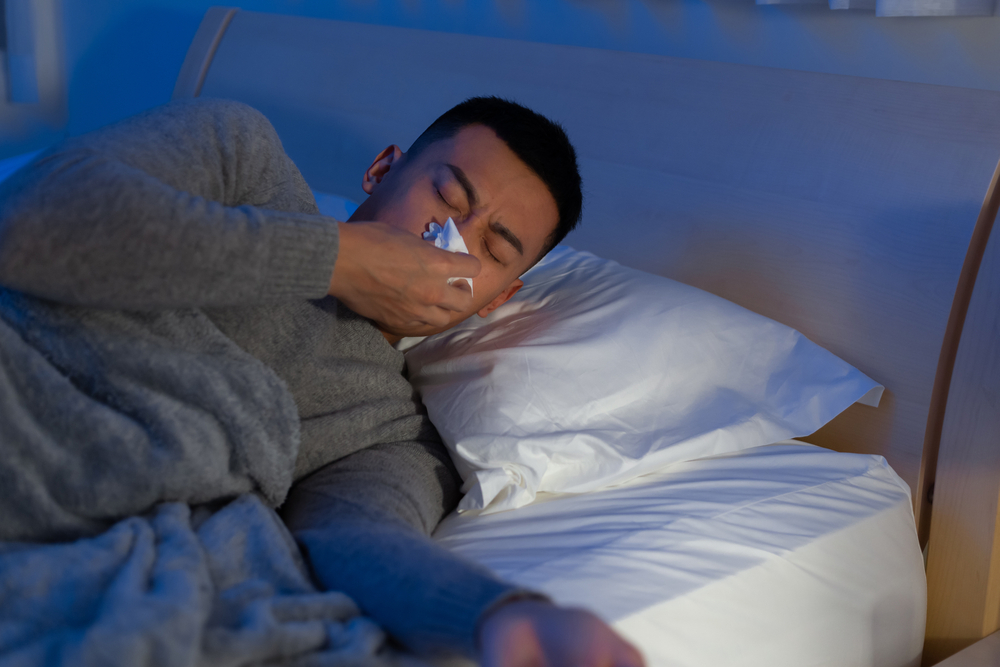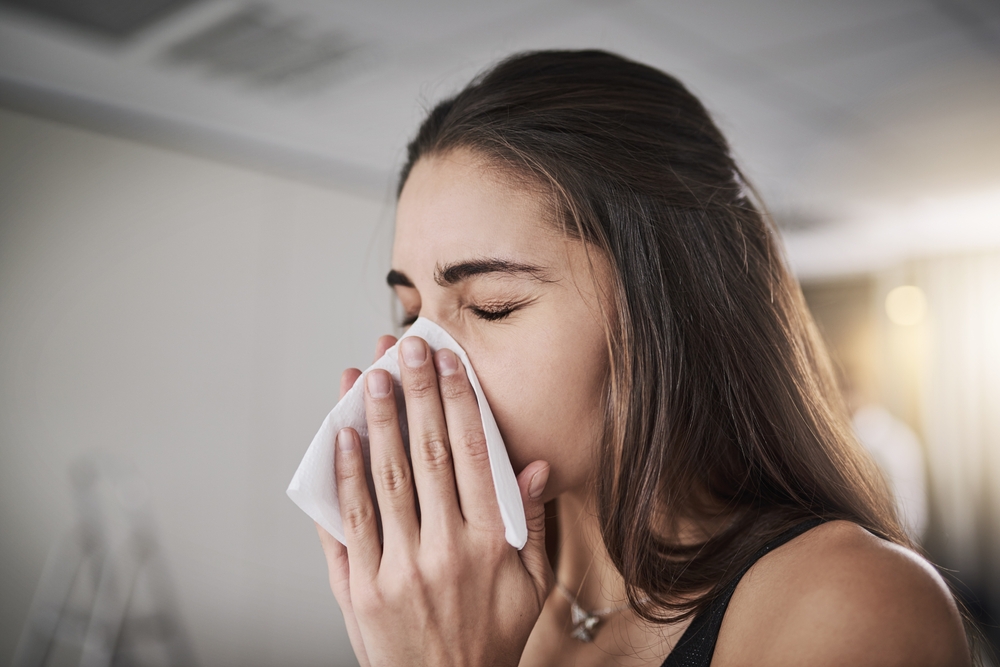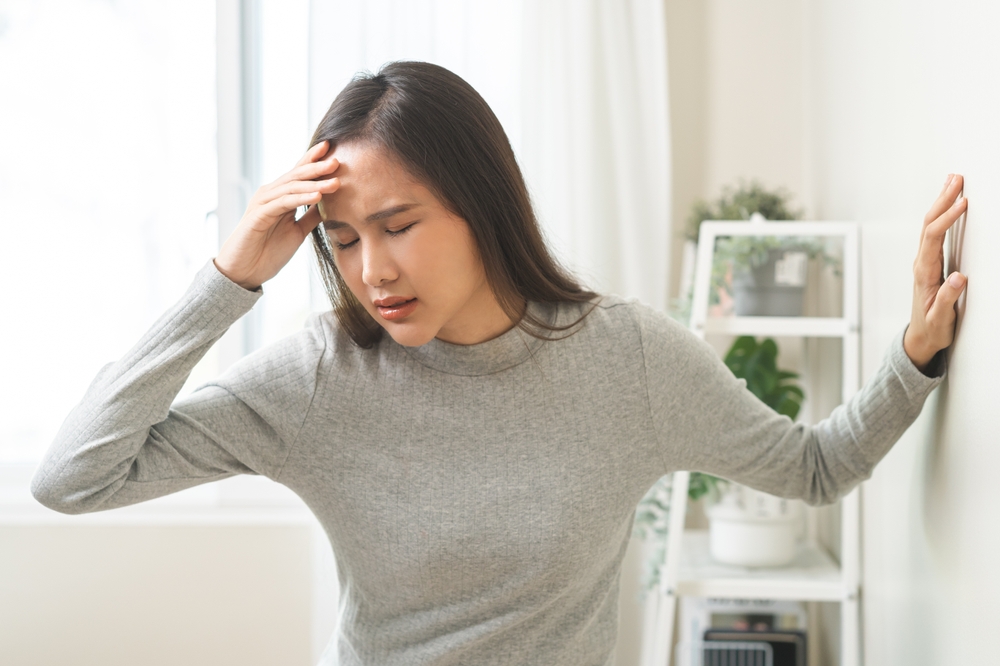You believed your condition was improving. The headache was less persistent, the runny nose was beginning to abate, and the sneezing had finally ceased. However, as you settled into bed and pulled the covers over yourself, everything seemed to take a turn for the worse.
Does it appear that your sinus infection intensifies during the night? This frustrating development is one that many individuals encounter as they strive to recover. The question is: why does your sinus infection symptoms seem to worsen at bedtime?
Sinus infections do seem to worsen at night
When you lay down at night, the sudden surge of exacerbating symptoms can feel like a setback. You’re resting, yet feeling worse? It seems counterintuitive. However, it’s crucial to recognize that worsening symptoms during the night don’t necessarily indicate that your infection is progressing. Therefore, the severity of symptoms doesn’t always signify a setback.
That said, as with any illness, sleep plays a vital role in your recovery. A solid eight hours of sleep nightly is crucial for your immune system to operate effectively. Thus, when your sinus infection disrupts your sleep, you might indeed experience heightened discomfort the following day. Understanding why your sinusitis symptoms worsen could aid in achieving more restful sleep and consequently feeling somewhat improved.
Why sinus infections seem so bad when you’re trying to sleep
Researchers have yet to pinpoint a single cause for the phenomenon of sinus infection symptoms worsening at bedtime.
Instead, it is more probable that a combination of factors contributes to this phenomenon. Some of the most likely factors include the following:
Changes in your blood flow
A significant source of discomfort associated with sinus infections stems from inflammation, which is why you often experience significant pressure around your sinuses. Inflammation, among its other effects, is highly sensitive to blood flow and blood pressure.
The theory is that when you lay down, the blood vessels in your sinuses expand slightly. Normally, this isn’t a concern; it’s simply a natural aspect of life. However, in the presence of a sinus infection, this additional blood flow and elevated blood pressure might result in heightened inflammation. Subsequently, this inflammation may exacerbate your symptoms.
Possible solution: Try sleeping with your head elevated.
Gravity is working against you
When you’re standing, it’s easy enough for your body to clear your sinuses: just let gravity do the work. But when you lay down in bed, the gravity of the situation changes.
The liquid in your sinuses finds it easier to remain in place, accumulate, and intensify the pressure you experience. This can cause significant discomfort as you attempt to sleep through the night.
With no other path to take, the nasal drip can also travel down your throat, leading to irritation and potentially worsening your infection.
Possible solutions: Again, try sleeping with your head elevated or give yourself an extra pillow. You can also try taking an over-the-counter decongestant or sinus medication to help alleviate your symptoms (and, of course, follow all the requisite directions for any medications you take).
Dry air is taking a toll
At night indoor air tends to be drier due to factors such as heating or air conditioning. This can irritate your nasal passages and worsen your symptoms, leading to congestion, discomfort, and trouble breathing.
Possible solution: Try using a humidifier in your bedroom while you sleep to keep the air moist and reduce irritation.
There are fewer distractions
You tend to be busier and more energetic during the day. You focus on the task at hand or the Netflix series you’re binging. When you go to bed, however, all of those distractions fade away, and you’re left with nothing to think about except the uncomfortable drip of mucus in the back of your throat or the pounding sinus pressure under your eyes.
This can create the illusion that your symptoms are worsening, when in reality, you’re simply more attuned to them due to the lack of other distractions.
Possible solution: Try using a humidifier. The white noise can help give you something to think about, and the extra humidity in the air can help ease your symptoms.
If your sinus infection continues to linger, whether they get worse at night or not, it’s important to seek out medical treatment so you can find relief from your symptoms.
Find an ENT specialist near you if you are unable to find relief from frequent sinus infections.



